Executive Interviews
Our Executive Interviews feature top leaders from across the disciplines that we specialise in, sharing their career advice and experience with candidates seeking success in those sectors.
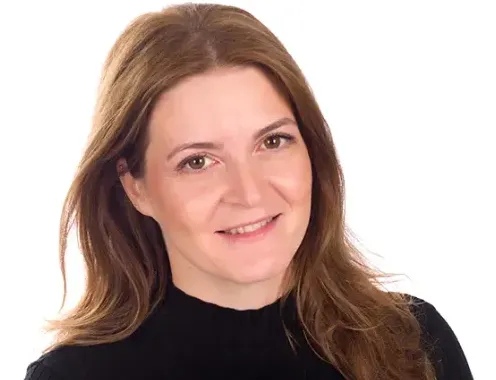
Antoaneta Ignatovska - CFO at Crowd Mobile
What excites you about working for Crowd Mobile?
Firstly, it’s the team - because we have a very young, energetic and diverse team. Also, being on the forefront of the online marketing and influencer industry, we have a team and company who are always thinking about the future and how to excite global customers and help them to make the right choices. This really motivates me. People are becoming more and more sophisticated in the way they make choices, they are more focused on the things they like and more selective. If we can help them make the right choice – I’m excited about this opportunity.
I also really enjoy the travel aspect of my role. I was in Australia recently for an industrial roadshow, which I attended with the CEO, and it was really exciting to see how people want to hear your story and get excited about it. It was a good chance for one-to-one meetings.
What does your organisation currently do to contribute towards the corporate social responsibility?
We are a small organisation and what we’re trying to work on is CSR which is meaningful to the company and the employees. For example, for us diversity is a very meaningful value and culture. We have over 30 different nationalities in our company and we’re definitely targeting a lot of efforts towards developing, growing and mentoring people. We started several training programmes recently, particularly mindful of the millennials in the business, to develop additional skills and grow further. Also, as management we are focused on progressing more females into senior positions.
As someone who has had many years working in Amsterdam, what changes have you seen to the employment market, particularly within finance?
It’s really competitive, especially in recent years. I’ve seen companies, especially the big and exciting ones, opening offices here because it’s a very innovative and very dynamic environment. In recent years Amsterdam has really become one of the best places to live and work in Europe. Sometimes I have found that the biggest struggle in recruitment is to find the right finance people with the right skillset, but also the right mindset - willing to learn and change. Adaptability is key. The bigger names can be more competitive and are attracting good candidates in finance and tech.
As a woman who is successfully working in a CFO role, what challenges have you faced throughout your career and how did you overcome them?
Mostly, I think, to be heard. It happened a lot in my career, both internally in the companies I’ve worked in and externally, that I’m the only female in the room. Also now during meetings, for example it happened a lot during the roadshow, that I’m sitting opposite male investors or analysts. So, for me, I think there’s a lot to be done in diversity in finance, particularly in senior positions and it comes from the fact that women don't like confrontation as much or to overpower anyone else’s opinion, so sometimes they are a bit more silent. I have tried to overcome this by contributing and giving my opinion. I think my advice would be to make sure that your message is heard – don’t be apologetic as there is a reason that you are at the meeting or have a seat at the table.
You have worked for both large and smaller businesses, what are the advantages and disadvantages of each?
The big organisations give you an opportunity to work on a larger scale and technically more complex or sophisticated projects, so this is where it’s usually interesting and challenging. The disadvantage can be that it can be more bureaucratic and layered and so decision-making processes can be much slower and more detached. In a small organisation you have the opportunity to make a huge impact; your reach is much broader and you can have an impact, but some small organisations struggle to scale and grow and this can be a disadvantage.
What would you say is the most rewarding part of your role?
Being able to build teams, the finance function, having an impact on the whole organisation and being relevant. I really enjoy things like that. I was lucky enough to do this in most of the companies I’ve worked for. I also really enjoy trying to open doors for young finance professionals, especially those who are female, to help them to grow and take a step up.
What have you noticed are the main challenges in recruiting?
If you think about financial people nowadays, you don’t need to be what traditionally finance people were years ago, only focused on historical numbers, reports and monthly close. You need to have a very different skillset, where you build relationships with the business, where you are able to translate and build a bridge, a common platform with the business, to be able to support it. You also need to be tech savvy – to be able to innovate and change the way you work rapidly. This is also something that finance people do a lot – they pick the tools they know, the traditional tools they use, but nowadays things change so fast that it’s key to change your mindset.
What would be your advice to someone aspiring to be where you are now?
Persevere and be curious to learn always. What I’ve noticed for me, is that the road is never a straight line, there’s always a detour or a step backwards or sideways. It’s important to do what you think is right. Be always curious to push boundaries and to jump into the unknown, outside of your comfort zone.
Which 3 words would you use to best describe yourself?
Approachable, no-nonsense and curious

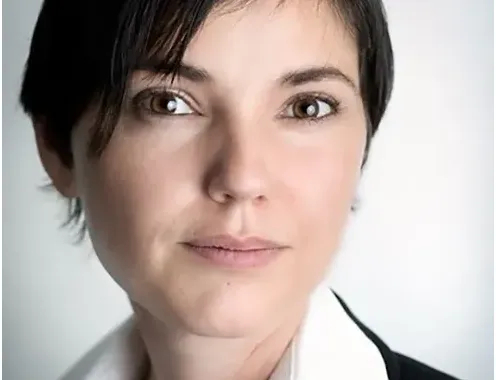
Anastasia Kati - CFO at Outdoorchef AG
Anastasia is a German national and a devoted mother of 2 children. She has spent 8 years in Switzerland and is the CFO of Outdoorchef AG.
Outdoorchef AG is an outdoor barbecue business with companies in the Netherlands, Germany and Austria, with the HQ in Switzerland, and is held by Diethelm Keller Group.
As someone who has been working in Switzerland for many years, what changes have you seen to the employment market, particularly within finance?
Over the last 9 years the market has seen an increase in Pharmaceutical businesses and start-up companies. Switzerland has maintained its’ competitiveness for new companies and still has a strong work life balance, which is attractive. Switzerland is known for our support of start-ups and low tax systems to attract international companies. We also have a strong international base of professionals which seems to have strengthened. I’d say there hasn’t been too much of a change on this front.
We can see that you are growing your brand portfolio, what is your strategy and how does this affect your position?
We have a lot of brands and sectors that we work with; what’s important is having a passion for your product, whatever it is. You need to find that motivation for the product.
Can you identify how your organisation stands out from the market and your competitors?
I just have one word - innovation. We have a unique product which is a unique system to produce tasteful and healthy grilled food. We are specialised on gas grills, which allows you time to spend more time with guests. It’s safe, tasteful and again healthy, which makes us one of the best in the market. The brand is just great - I have two barbecues at home!
What challenges await your business and how do you hope to overcome them?
There are always challenges that you will face, in any business and in any role. The best advice I can give to overcome these, is to surround yourself with a good strong team. With these foundations and working together, any challenge can be overcome.
You have worked for small companies and large businesses, what are the advantages and disadvantages of both?
I’ve really enjoyed working in both and believe it’s helped in my career to date. In a large business you can become a specialist in your field. In a small company you need to be more of a generalist, an allrounder. You have to work smarter and faster and I really enjoyed working closely with a business. It’s a little harder to be recognised in a larger company, but the training and development is there to support you. I had the luck of both and learned and developed my skills.
How did you get to the level you are at?
I’m ambitious, and I dedicated a lot. I love my job - motivation and passion are key attributes.
What great decisions do you believe you have made throughout your career and have you had to take risks?
Beginning my career in practice helped me. Not everyone who starts in the Big 4 becomes a CFO, so taking responsibilities and risks in your career is key. Everyday decisions hold elements of risk. When an opportunity arises, take it with both hands and embrace the challenges.
Looking back through your established career, what would you identify as a personal highlight?
Working at an international level, it’s really helped me to understand a variety of cultures, which makes you more open-minded. Languages are also key. I speak German, English, Italian and Greek; this gives me a better understanding of people and I can connect with my teams faster.
If you could give advice to mid-level accountants who are now thinking about their next career move, what would it be?
It always depends on their career ambitions; if they want to move forward and improve, it’s important to start with accounting. The basics. It’s key to know how this works and you can then become a Controller, Finance Manager or move into a ‘Head of’ role. Have passion in what you want to do and achieve. Changing companies and industry is also good - this varies your experience.
What advice would you give to future aspiring leaders, and why?
I would advise to lead with energy and focus; it’s again about having the passion for your role. For women, it’s important to treat all team members the same, in turn you will be treated with the same respect.
There shouldn’t be a divide between the sexes. You should be adaptable and teach this skill to your team. They in turn can work at the same speed as you. It’s important to have the trust and motivation from your team. Give them focus, work towards a target and enthuse energy to achieve the targets. Encourage team meetings with a purpose or agenda to follow.
Who is the most inspirational person in business to you, and why?
I have a lot! Every supervisor, CEO and colleague I’ve ever worked with I’ve learned from and they inspire me. I learnt the most from a former manager of mine; we didn’t personally connect but I was taught some great fundamentals which I still use today.
Equality in the workplace has been a hot topic for several years now. As a female CFO what issues do you face and how do you overcome them?
I think it’s really important that, as a Female CFO, I treat my team, my colleagues and my CEO the same. I’m not treating a female or male any differently and this reflects again on being treated the same regardless of title. I’ve seen results with people treating each other like this. Throughout my career I have had to prove myself and to reach board level to bring another perspective to business and wish to see this increase throughout other international companies.


Abby Ho - CFO Asia Pacific - Reichhold
How did you get to the level you are at? What great decisions do you believe you have made throughout your career and have you had to take risks?
I always think that it was helpful to start out at the bottom and, if you look at my resume, I started from the bottom doing accounts payable, accounts receivable, invoicing, logistics, etc. When I look around sometimes I see people who come straight from university and they go to directly into a medium level role - which is fine when you know what you are talking about. For myself though, I find it helpful to know the foundation, to know the ins and outs of procedures and different departments, so that when you get to a higher level you understand and know what you are talking about, instead of talking about a theory and not realising that practically things work differently to what you learn in books.
That has been pretty helpful for me. For example, I did accounts receivable ages ago, but at this moment in my position I am dealing a lot with coaching my team on how they should collect from our customers or handling contracts with our collections agency. I know what the basics are so don’t have to truly depend on what people are telling me and can be at the same level to work with them.
From the ‘taking risks’ side, I don’t think it is really about taking risks, but more about daring to step outside of your comfort zone. There are times when I have been asked to take up responsibilities where I don’t have the full expertise so I would jump in there, be honest about what I can and cannot do, but at the same time, using my own networks and speaking to the right people to obtain what I need. On the whole it is better to be honest about your knowledge gaps and ask for advice; people will be more inclined to help as they appreciate your knowledge and will be more willing to share with you and you can learn from them.
If you could go back and give your younger (graduate) self some career advice, what would it be?
Like I mentioned, I think it is about starting from the bottom and if you are good, you will be recognised and that is where you grow – not starting high and falling hard. It is really good to also not only look at your academic and technical knowledge but also your soft skills and that is what I normally focus on when I interview people. Someone who doesn’t have the technical knowledge can learn, whereas someone who has poor soft skills or thinks they know it all, is harder to guide into the shape you need them to be.
When did you decide to explore a career in this area and why?
Well, that is funny, as I was doing very poor in my junior high school maths and I was really bad at numbers and would get -10 points out of 100. That was quite an achievement I would say! Somehow, I overcame it by doing it repetitively and working hard. Then I got to the point where I started to understand things and the door just opened for me. At university, I was doing different things like marketing and international management, but people around me always said I was going to end up in finance. In fact, we had a school reunion and had to guess what everyone was doing now and everyone guessed right about my being in Finance!
How important was it for you to develop relationships outside of your department for career development?
I think this is an interesting point, as this is something I would say to mid-level accountants as well. Some of them ask me why they are staying at mid-level and are not able to climb higher, even though they are good at numbers, etc. What is important is to learn from different areas of the company. The finance function comes up with the financial statements at the end of the year and that is a summary of what has happened in the company, but this is not just finance; we gather the information and provide it and the business uses this information. Therefore it is important to learn from each department, to do your networking and speak to different people. By opening your eyes to a bigger picture, you then can better understand the reasons why we are doing this and what messages are brought to the decision makers - becoming an internal consultant to the company.
I think external networking is also helpful. For example, even if your current company is not innovating through AI and automation, etc, you should put yourself out there and understand what is going on. If you are sitting in your own office and not looking outside, you are going to be left behind at some point, whereas if you know this even if you are not doing it, it will help you to position yourself when you need to make certain decisions. You will already have the information, know what to do and who to contact - I think that is pretty important as well.
I have been to different conferences and seminars and even though you don’t necessarily do business with these companies, you get to hear from your peers (another accountant, treasurer or someone from the business) what they are doing, you know what the options are and this helps you to be a better advisor. The secret to networking? Just talk to people; be humble and stay open-minded. Through my career, I have been able to use my networking for the benefit of the company. There are cases when other departments need someone whom I know and I can make a referral. Talking and listening to people, and observing what they are up to, can be quite important; instead of just sitting in the office and doing your own thing. I don’t blame finance professionals, as you get stuck in with your own work and it is stressful, however, we spent money and we don’t make money, so we have to find areas to save money!
What would you say is the most rewarding part of your role?
I think that would be the recognition and not just on the knowledge side; technical knowledge is something you can learn on the job and absorb, whereas if you think about myself for example, I have been recognised for the soft skills and cultural background. This is one of the reasons why I am in the position I am in. It does not necessarily mean making good money is the key, but it is the job satisfaction which you get when you get to resolve a huge issue or meet your targets, or even exceed the limitation you once thought you had. At the same time, there are a lot of factors involved in whether you are successful or not, e.g. if I have a KPI to meet a certain % of EBITDA, I can’t do that alone, but can advise stakeholders on what they need to watch out on, in order to help the business to meet the target. Team recognition is also the key.
Looking back through your established career, what would you identify as a personal highlight?
I think moving from being a specialist. I have been a financial specialist for quite some years and moved into management and shared service centre management before my current role as CFO. These were the big steps I have made – this is a recognition for my work. I have worked hard, however, sometimes doing just that doesn’t get you to where you want to be. Sometimes you need a bit of luck and some outside factors to get you where you are. I have been lucky too to be given the opportunity on exploring my career further.
What advice would you give to future aspiring leaders, and why?
Being able to inspire people and motivate them is to get the best out of them. If you have team of people, you can’t always have the same approach with each person. People have different characteristics and will have different visions. One person might want to stay and not change their role and in situations like this, you can’t keep pushing the person as they will not stay. You have to understand what they want, what they can do, what they cannot do and use that to develop your team. Listening to the team to make the best out of the team.
If you could give advice to Mid-Level accountants who are now thinking about their next career move, what would it be?
I guess it would be about being open-minded and looking at the bigger picture - not only thinking ” This is the step I take, this person gives me a report and then I send it my manager”? and that’s it. It is important to understand what impact you have on the rest of the process and what you can do to help your manager to do their job right. By thinking out of the box, it will help you grow further.
Now that you have interviewed hundreds of accountants in Amsterdam, what interview advice could you give?
I would suggest not only talking about what you are able to do technically, but also, before you to go interview to think about what values and soft skills you have that can contribute to the company. So of course, you are not going to be so innovative when you first join a company – your softer skills may be to be a good listener, for example; observing and understanding what is happening; understanding the background before rushing into making changes. I have seen people who are very enthusiastic - especially the younger generation – and they come into a job and say all the processes are wrong and tend to think they can make a change immediately. The challenge here is that this creates a barrier for them as the people working there will feel threatened by their ideas. New blood to the company is always good, but first observe, understand and slowly apply your ideas to the company and work on that; being patient is important.
Overall, I have been quite lucky as I have had mentors in my career. I have had good relationships with my managers, who also give me technical advice and helped me to grow into the manager that I am. I’m lucky with this, as I know it is not always easy to have a good boss. Yesterday I was reading an article, about how it is more important to have a good boss than it is to work in a good company, which is a very valid point.
Who is your most inspirational person in business and why?
I have always had a manager whom I can reach out to. I’ve had managers who do not sit in the same office or country and in that situation you need to know when you should reach out and on what. I‘m definitely flexible and it is always give and take, so by giving something you get something back. Having these inspirational people in my life is a big plus – my former managers. Even now at this stage I still keep in touch with them and they give inspiring, wonderful and helpful advice.
What books / blogs are you currently reading? What book could you recommend to accountants who are wanting to progress?
I have been reading the Michelle Obama’s book – I found this an interesting read; it is good to read about strong women, learning from them.
Describe yourself in 3 words
I would say I’m a problem-solver (can be good and bad!), open-minded and empathetic (on the people around me and team members - at the end of the day they are people; not just machines that you turn on and off!).

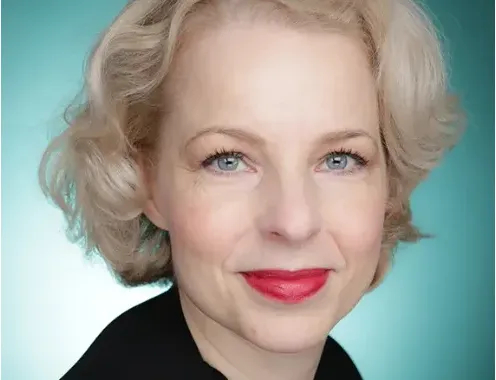
Katariina Wallin - VP Finance - Technology Product Solutions and International Services at Black Box Corporation
What brought you to the Netherlands initially?
I’m originally from Helsinki, Finland. I was finishing my MBA in Finland and decided to come here for an exchange year at the Vrije University. Midyear, I was lucky enough to get an Accounting Assistant role in an IT Distribution company and started working there part-time in the Finance Department. As the semester drew to a close, they asked me to stay on full time in an FP&A role - and I did. The company was a hyper-growth start up and was acquired first by Lockheed Martin and then by GE. With the growth of the company, my responsibilities kept progressing throughout the years and ultimately I became Finance Director. Career-wise there was more opportunity in the Netherlands and it made no sense to return to Finland.
What do you like the most about living and working here?
It’s very relatable for me coming from Northern Europe. It’s a very well run country; everything works well – there’s good infrastructure, education and healthcare and consequently very few frustrations and a good ease of living. There’s also a very good acceptance of the importance of work/life balance.
You have worked for Black Box since 2004. What have been the main changes to finance processes that you have seen throughout that time?
Well, my job has changed completely, a couple of times over, during this time. When I started, it was a corporate finance function. It was a decentralised matrix organisation; we did mainly strategy, corporate reviews and consolidation and were not very operationally involved. Over the years we became functionalised and in 2017 we created the shared service centre in the Netherlands – now it’s a completely operational finance function. Finance roles have also changed over the last 10 years – finance is now more focused on strategy and financial analysis, as a decision-making tool. What was the bread and butter of finance when I started - accounting and controlling - now has less focus, but is expected to work like a Swiss clock, always on time and never failing. Most of my day is spent on making decisions for the future rather than analysing historical numbers.
When I first worked here, I was the only person in international corporate finance! It was a satellite function, supporting the VP for the business unit. As SOX and other changes came in, we created more corporate finance functions. If you do something well then you get more and more to do, which we embraced, and so the team grew and grew and we now have 30 people in finance in the Netherlands (80 in total).
We have expanded our business, especially in Far East and APAC, and changed our go-to-market model in some countries to channel. We purchased an R&D company in Ireland and launched our own products. All these have had an impact on the blueprint of the business and also on finance processes.
What kind of culture have you created in finance at Black Box and how?
It’s always funny when people talk about creating culture, because ultimately we are just ourselves at the office. It’s a very transparent environment. It’s challenging but, at the same time, very considerate. We have a lot of humour of course! And a good team spirit, coming from the challenging projects we have completed together, particularly over the past two years. We have converted the ERP together, to Microsoft Dynamics, and centralised together. All of these projects gel you together as a team. Also, other factors which I take for granted like the fact that our kitchen has long tables, where we always have a sit down lunch and spend some time together to share the latest news – we try not to talk business. As we’ve expanded, the tables have gotten longer!
What changes have you seen in terms of the challenges you face when recruiting?
Although some language and technical skills combinations are hard to find, in general Netherlands is reasonably easy to recruit in. Language skills are becoming less of an issue as business language is English more and more. The challenge is more in finding the right people who are adaptable and with wide range of (transferable) skills to transform together with the company, as we grow and change. As the department has grown, we have been able to attract and retain great talent, as they can see the progression opportunities. I am very proud of my team, trying to be a good leader for them keeps me going.
What impact will the recent acquisition by AGC Networks have on the global presence of Black Box?
Our geographical coverage is complementary, AGC is strong in APAC and Middle East and we in Americas and Europe. So it’s really a perfect match – together our offering is quite complete. Furthermore our managed services capabilities are complementary. In short, it expands our reach in terms of global markets, verticals and clients.
What has been the biggest challenge for you in progressing to become VP Finance?
I think the biggest challenge for us all, is to have the opportunity to work with people who will teach, mentor and believe in you, especially in the formational years of your career. I took on a Finance Director role in a 300M EUR turnover hyper- growth organisation at 28 years old and that was definitely challenging. But luckily the management team was very collaborative, supportive and really gave me a kick start. If you have the right ingredients in the beginning of your career, after that it is about doing the work diligently, being curious, learning new skills and not getting stuck in the comfort zone. A lot of people helped me along the way, and there are some people I am indebted to for sure – for example a HR Director in GE, who really helped me as I was very young with little life experience and managing a big team. You can imagine that was sometimes challenging. So good peers, managers who challenge you but also support you, to take bigger steps than you might have done, are so important.
If you could go back and change one thing about your career, what would it be and why?
I wish I would have had exposure to various industries, such as HealthCare or FMCG. I feel we get typecast easily based on our experience, but actually the skills are very transferable and often a fresh perspective may open new ways of doing things. I’m not sure it achieves anything if we continue to take people from the same pool.
What do you love most about your role?
I love a lot of things about my role. First of all, most of us have broader roles than you would expect (for example in GE I also managed logistics and legal) and, secondly, we have become more like strategy makers, supporting the Managing Director/CEO. It is our job to explain the financials, tell the story of the numbers and translate the strategic plans to numbers to validate the hypothesis. Because we know the numbers and are neutral, due to our position, we are often invited to the boardroom alongside the MD. Being invited to pitch a new strategy with the MD – this is the area I particularly enjoy in my role. So when affecting major changes, we often have a seat at the table which is exciting. Sometimes it’s very funny because I can work from micro to macro in one day – debating a small charge on an expense report and then making a decision on a 2 million deal!
What advice would you give to women in finance careers who are looking to progress to a senior level?
Generally, just say yes to challenges, trust yourself and others and delegate if you need to. There is nothing as empowering as taking on a new challenge. Things that you may see as limiting may be your biggest strengths, for example if you are short of time because of small kids, you are probably excellent in organising, prioritising and multitasking and family life has given you great interaction and situational skills. Sometimes the life skills we acquire as a parent are completely transferable in business. So take the chances offered to you - once you have overcome something difficult, you gain confidence and get into a positive cycle, so be courageous!
Is there anyone, either in your personal life or in the public eye, who you would aspire to be like?
I don’t really believe in idolizing anyone. I appreciate people and read and learn, but in my eyes sometimes ordinary people are bigger heroes than people who get media coverage. We all have our own paths to follow and the responsibility to make the best out of them. In my family, my Grandfather came to Helsinki as a young man with no education and very little money in his pocket and became a successful entrepreneur with several businesses. He was also a man of faith and so did missionary work. To complete his education, he went to university in his 60’s! He was, to me, a great example of being open-minded to the opportunities that life can give you and of being courageous.

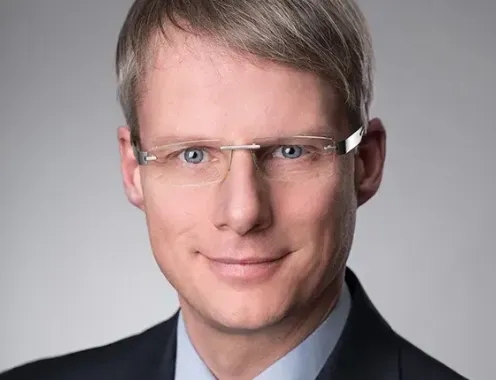
Oliver Kasper - Director People Analytics & Digital HR at SWAROVSKI
Swarovski have been through a large-scale digital HR transformation; can you tell us more about this and what the business case was for doing so?
We started our HR transformation project in 2015. Before, we had a very fragmented HR landscape which made it very difficult to ensure a companywide digital HR transformation. Our transformation included systems, processes and roles of managers and employees. The project included all our 28,000 employees of Swarovski Crystal Business and the ultimate objective was to standardise and digitalise processes, systems, data and the roles of HR, line managers and employees globally. Not a small scope indeed, but the project was successfully executed from mid-2015 until mid-2018 on a global scale. We closed the project with our executive Steering Committee just recently.
The pace of change in technology is having a profound effect on the human resources function. As a Digital HR strategist, perhaps you could give us your insight into what HR will look like in the next 5 to 10 years from now?
It is very difficult to look into the crystal ball, but let’s give it a try. First of all, HR will move in into the centre of the enterprise. The Head of HR is becoming the new business leader and is no longer just an executive of a supporting function. In the 70s the CFO was the most important person next to the CEO and this will change during the next decade. Second, HR will be by far more data driven than in the past and HR will move into fact-based decision making (without data you are just another person with an opinion). People Analytics will move into the centre of HR and will ensure that HR is broadly accepted by the business. There are already great examples available from data driven companies which move into this direction, e.g. Google, ING or ABN Ambro. Third, technology will be the main driver in HR. AI, robotics, automation and all the other technologies will be a naturally included in HR. For example, it is acknowledged for long that manual labour jobs are shifted to machines, but machine learning means that robots will also be able to take on many cognitive tasks better than their human counterparts. This will radically change the workplace and the workforce. HR will have to find and maintain a balance between machine labour and human labour, and potentially begin to deal with a re-imagining of human workers’ purpose and scope.
How do you keep up to speed with the ever- increasing capabilities technology offers?
This is very simple at the end. What business value does technology bring for your enterprise? If AI, cloud, personalization – just to mentioned some of the buzz words – is not leading to better company performance then it is not worth moving into this direction. Additionally, you need also to be brave and just try things out. The old way of long-term planning is not as valid as in the past. A decade ago 5 – 10 year roadmaps were state of the art. Nowadays technology changes so fast that you need to constantly adapt your roadmap.
You have built and led teams in People Analytics, what recruitment challenges do you face?
This is a very good question and indeed recruiting in this new space is very challenging. The perfect People Analytics manager needs to have set of various skills. From my point of view this is mainly:
· Business acumen: Financial literacy, Political astuteness, Internal and External awareness
· Communications: Storytelling, Visualization, Writing, Presenting, Marketing
· Consulting: Problem definition, Hypothesis building, Project management, Solution development, Change management, Stakeholder management
· Data Science: Quantitative (mathematics and statistics), Computer Science (databases and programming), Data awareness
· Human Resources: HR sub-functions, HR interdependencies, International HR, Privacy and ethics, HR «sixth sense»
· Work Psychology: Industrial psychology, Organizational psychology, Research design and analysis
Typically, people focus on the last three skills, but the first mentioned are more important. The first three are the make or break if your People Analytics projects will have business impact or not. At the end stage you need all 6 of them to be successful.
We had a very thorough and well-structured recruitment process. I was very lucky with my first recruitments as they can cover all 6 needs skills needed to be successful in analytics.
What would you say is the most enjoyable part of your role?
I am passionate about a broad range of topics in HR and I enjoy building up new teams, efficient and effective organisations and working in projects connecting different cultures, countries, functions, units and processes. Nevertheless, what excites me most is having measurable business impact with the activities we are doing. Especially currently with People Analytics - if you do it right you can have considerable business impact and correspondingly great feedback from senior business stakeholders. This makes real fun and I enjoy this a lot.
Who was your most admired person when you were in your childhood and why?
My parents and my grandparents showed me how to enjoy hard work, being resilient and move things forward also under difficult circumstances. Looking back all of them contributed to the person I am today. I am very thankful to all of them.
If you could choose an Artistic/Musical/Sporting career, who would it be and why?
My biggest hobby is my family, but you are asking for a career. I love to be in nature and therefore I would choose one for winter and one for summer. In winter I would love to do ski tours and in summer I would love to kite surf. My wife and kid love both too, but especially I enjoy the feeling being in sync with nature with both sports. They combine nature, action, fun and are technically ambitious.

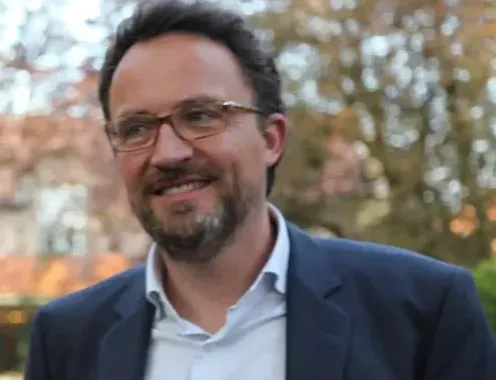
Philippe Verclytte - Indirect Tax Partner at EY
Given your experience across a variety of sectors including Consultancy, Legal and IT, what was the appeal to you of becoming a partner at EY?
To be honest, I wasn’t heavily looking for a partnership when EY contacted me. I was in a good position working at Lexmark, having joined in mid-2016 as Global VAT Leader, overseeing a large group with 80+ international entities for VAT (advisory and compliance). After 6 months, in December of the same year, I was promoted to Global VAT and Foreign Income Tax Leader – increasing the scope of activity dramatically. It was really speedy learning, as VAT and customs are very different to the direct tax environment which I was now confronted with. Issues included transfer pricing, local & global compliance and working with consultants from Big 4. This opened a lot of doors. EY were looking for a VAT partner in Geneva and previous colleagues from my time in Big 4, who were now at EY, talked to me about this opportunity.
A Partner opportunity like this is too good to refuse! I know a lot of people already within EY and knew it was a good place to work. The headquarters are in Zurich, but on the French side of Switzerland we are very autonomous and today I have a pretty open market to approach. Suisse Romande has around 40+ multinationals in global operations & trades and also the swiss market – including swiss entities and family owned businesses. We are covering all aspects and including more customs practice; we have issues to come in customs, with things like Brexit on the horizon. A hard Brexit would mean building everything from scratch with the companies, providing a lot of challenges.
What has been the most rewarding part of your career and why?
That’s easy. I started working in 1996 in international logistics, then joined Deloitte and onto PwC. In 2007 I left Big 4 and moved into my own business as a Tax Lawyer, establishing my own practice which ran for almost 8 years. I left the comfort of a salaried job to establish myself; it was a target of mine to do this at the age of 40. It was challenging and very much building from scratch, an experience in life which is very worthwhile, as you are doing everything yourself. The administrative part of running a business in France is quite difficult sometimes. I established a new network - not all big companies, but more middle market environment - learning how to react to CEOs, founders and owners of businesses. Itâ €™s a close relationship so if the fit doesn’t fit, it doesn’t work. Selling wasn’t the most difficult part but delivering – it can be a difficult time when being asked to do something you don’t want to do and sometimes even having to refuse.
What challenges will your new role provide?
When you’re a partner it’s a less technical, but more business development-focused, role. You go to the market and really work on identifying clients, meeting and serving them. We will be offering high level products, services around VAT, customs and indirect taxes.
Companies are moving more and more towards technology and the dematerialisation of documentation. The EU is looking towards safety – e.g. real time invoicing, order processing. We can expect that paper will have disappeared from these processes 3-4 years from now. We need to focus on this and to present this to clients.
The present teams doing returns will probably not have the technology skills needed for the future, so things will almost certainly change. The tax mission is really to go to the market and to meet people (which I really like to do) and, although we work to targets, at EY it is quite flexible compared to the other Big 4 as you have time to build relationships.
In the multinational businesses we deal with, we are working with people from many different countries and cultures, so I will continue to learn more and more - it’s a real ‘human’ adventure. It’s a challenge of the new role to go to business development, also to build the team and ensure they want to come to work and enjoy it, give them autonomy and ability to deliver. Retaining staff is also a challenge – young consultants know the industry is calling them. Nowadays people have a lot of opportunity and there is an ongoing ‘game’ between Big 4 and industry to attract and retain the employees. My approach is to talk to them about career development and aspirations and plan ahead. I try to be as close as possible to the team.
How, and in what ways, has your experience at Lexmark expanded your skills and knowledge?
The quick progression at Lexmark created an extremely speedy learning opportunity and expanded my knowledge regarding a range of issues – transfer pricing, M&A and accounting for multinationals, including reporting standards such as US GAAP. I also had opportunity to work closely with people and departments I hadn’t worked with before, such as IT. We implemented a brand-new reporting process worldwide and found that trying to explain invoicing requirements in the EU to pure SAP engineers was a challenge – especially in a massive organisation, with hundreds of thousands of lines. This experience was great and I’m very thankful to the person who hired me (VP Finance) – I had exposure to working with various cultural roots/backgrounds, learning how to work well together and different ways of working. I found the human side very interesting and the aspect with the biggest learning curve. I am extremely happy joining EY, but the time at Lexmark was excellent experience.
How do you feel that Indirect Tax has evolved globally in recent years?
This is the best part of the game! It’s moving all the time. 10 years ago, customs was on the front line; EU customs decided to rebuild environments for the customs code and also the technology – this was very interesting. VAT was at that time pretty old fashioned, with paper VAT returns, but now it’s moving to technology. A lot of companies in the EU have moved to e-submission – countries such as Norway, Poland, Spain, Italy, France are ahead on this and are also implementing tools to fight against fraud. Fraud on VAT is the biggest tax fraud in Europe, so they are very creative in inventing tools and proposals to fight it.
We are going to have a new environment. Since 1977 and the 6th Directive, VAT was supposed to be in a transitory period. The European Commission is working on the final VAT position. This is very challenging as we will have a definitive VAT regime, will be facing technology issues, sometimes local languages too, customs & Brexit issues inside the EU and outside the EU (GCC) are still implementing VAT. This is hard to follow; you cannot standardise as it’s country specific. Even in the EU, you have to follow closely with local teams. Global projects are very interesting – you have to give countries rules to implement differently, including Swiss environment.
The interesting thing from my perspective is that VAT/indirect tax is talking real business, real life, cash, people moving from one country to another and a very economical way of behaving; if you don’t deal with it well, you’re losing money. I’m a big fan of VAT! You really have to be hands-on and meet people to do the mapping – go to warehouses, docks and to the companies.
What approach can future clients of yours expect at EY and why does it stand out from your competitors?
The thing I have noticed in my time at EY so far, is that it is so easy to talk to all counterparts at EY – across TP, Tax, all service lines, etc. - to share information and knowledge about clients. It’s very easy to get to know people and a trusting environment at EY, which creates a nice atmosphere. When it’s good internally then it’s good externally – I am having introductions to clients who are happy with the service they’re receiving from EY. I know I still will have to demonstrate our ability and deliver, but I have always done this. EY can provide the environment to implement what I want to, on a global basis.
I see this EY position as very much a long-term plan, to build relationships and build the team for the future.
What is your management style and how do you empower your team to grow the business?
I’m easy going and not into micro-management - it’s a waste of time - so I really trust in people. A manager is in that position because they deserve it, so let people do what they think they can do autonomously. My job is go-to market and to be in the office as little as possible, so it’s a question of trust and personal link – let people do what they want and like to do. If you constrain someone it will never work - I like to empower the team to run effectively whilst I’m away from the office.
I don’t class myself as a ‘boss’ as you’re only an effective partner if you have a good team. I encourage talking openly in meetings where everyone can bring their own knowledge and ideas to help find the right solution. When I had my own practice I really missed the opportunity to share the ‘wins’ with a team.
What are the core competencies that you look for in people who work for you?
Across Big 4 we generally hire the top level of students, but this being said, it’s then really a question of fitting. If you have two people with the same profile, you can feel the difference in how focused they are in interview. The company is looking for dedication and hard work but it’s the curiosity to look outside the box, an entrepreneurial way of thinking, to look beyond VAT rules at the global business, the global flows and complex environments – and this you have to learn. Be proactive, think about new solutions, new steps and make suggestions.
What or who inspired you to pursue a career in tax?
No-one really! When I was studying I wasn’t really a good student. I went to business school first of all and then went back to study CPA, after which I did a placement with a CPA firm. I lasted 2 days before thinking I needed to find a job instead! I went to a logistics entity and they had a position in fiscal presentation, customs & VAT – so I’ve really been dealing with VAT since day one. I finished as legal director at this company, then went to Deloitte and decided to become a lawyer. My mentor in VAT was a partner at Deloitte and she was really inspiring – an alien of the time as she trusted people so much and wasn’t micro-managing, covered my back for some mistakes and taught me a lot. She kept also telling me that you need 10 years to be a good VAT advisor because the experience gives you something you can’t find in the books. She will recognise herself!
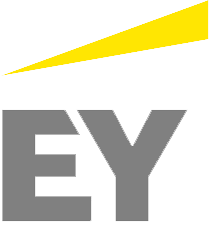







You can also use your social account to sign in. First you need to:
Accept Terms & Conditions And Privacy Policy